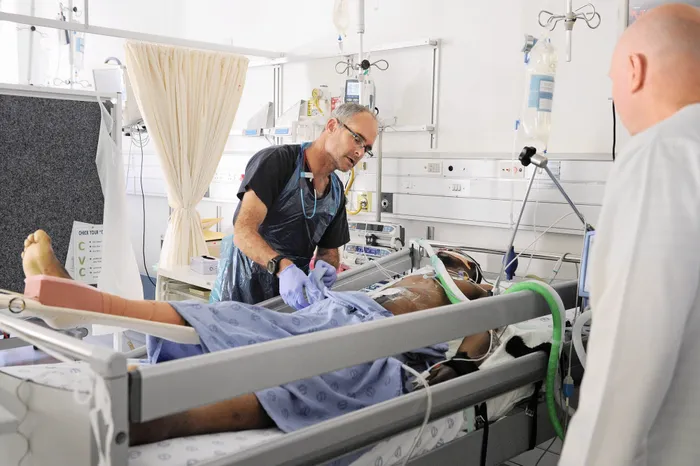WhatsApp group speeds up bone fracture treatment

Orthopaedic social media referral group improves treatment waiting period. David Ritchie African News Agency (ANA) Orthopaedic social media referral group improves treatment waiting period. David Ritchie African News Agency (ANA)
TRAUMA doctors in South Africa are never without work to do.
“Every day three children, eight women, and 47 men are murdered in South Africa. Every single year we have 1 million road accidents.
“As South Africans, we love to fight, we love to drink, and we just cannot drive,” said Professor Andrew Nicol, head of the Trauma Centre at Groote Schuur Hospital.
This week, Nicol co-hosted the Cape Town International Trauma Conference where trauma experts from South Africa and around the world gathered to share their research, skills and experiences from saving the lives of people injured in traumatic incidents.
The conference is a collaboration between the Trauma Society of South Africa and the South African Orthopaedic Trauma Society, with the South African Association of Paediatric Surgery also joining this year, highlighting the growing trend of children becoming trauma victims.
Doctors shared the advances and innovations that they had developed out of necessity to better cope with the workload.
Dr Jimmy Kauta presented a study on his initiative using a WhatsApp group to improve health services to people in Mitchells Plain who suffer bone fractures - a common injury from falls, accidents or gunshots.
When Kauta was appointed head of Orthopaedics at Mitchells Plain District Hospital in 2017, he very quickly realised the patient burden was far more than his team should be dealing with.
“Our fracture clinics were massive, we saw more than 100 patients (in a day),” he said.
“The referring Community Health Centres (CHC) did nothing for these orthopaedic patients; they referred everyone straight to us. This resulted in frustrated patients, frustrated sisters and doctors. This needed to change.”
Kauta went to visit every CHC in the referral area for his hospital, to understand why this was happening.
It came down to a problem with communication: CHC staff weren’t able to reach orthopaedic doctors from the district hospitals for advice on how to manage the fractures, so they just sent patients over there in person, resulting in excessive waiting times.
“We decided to form an orthopaedic referral group on WhatsApp, to support them with decision-making, aiming at helping them sort out some of those fractures at their level,” Kauta said.
“Two years later it is still running.”
The CHC doctor will post anonymised X-rays and clinical information on the WhatsApp group, and almost immediately receive advice on how to manage the case or refer it on.
Of all the patients with fractures, 59% were managed at the CHC through the mentorship provided over Whatsapp.
“It reduced the number of patients that we now see at Mitchells Plain Hospital,” Kauta said.